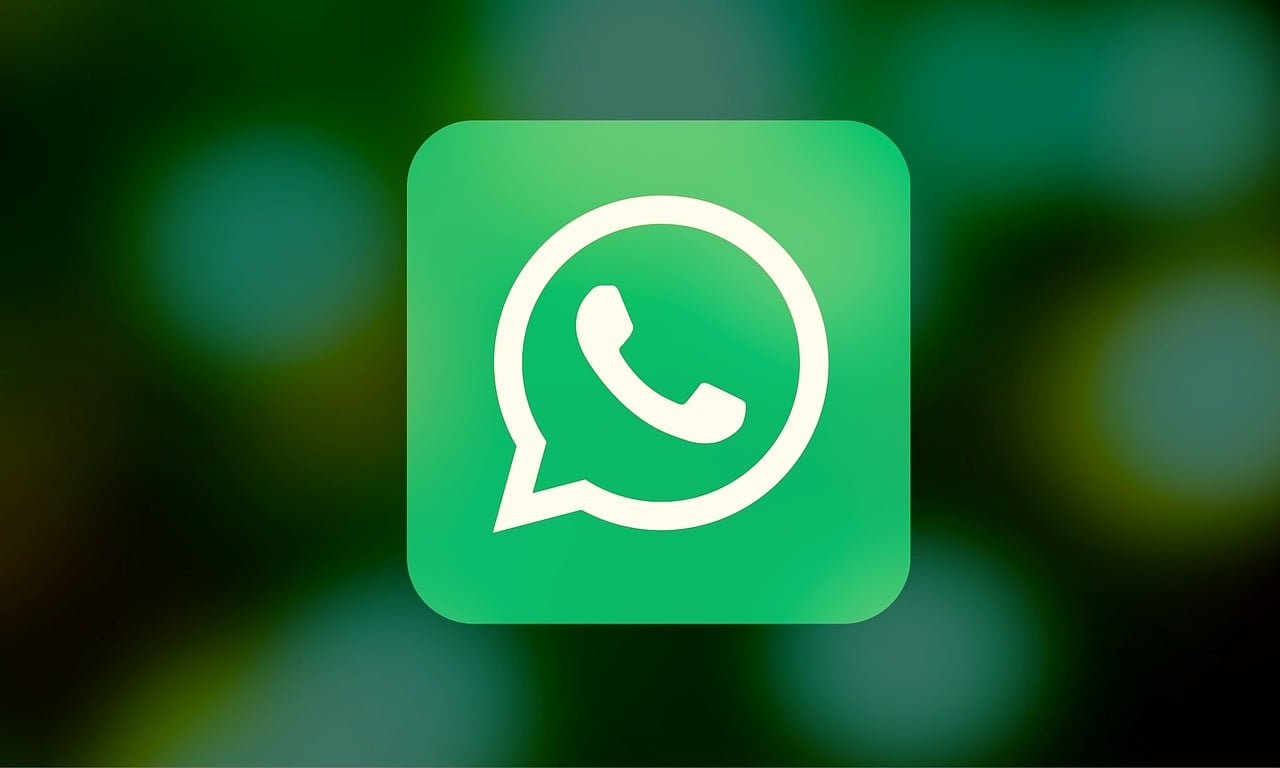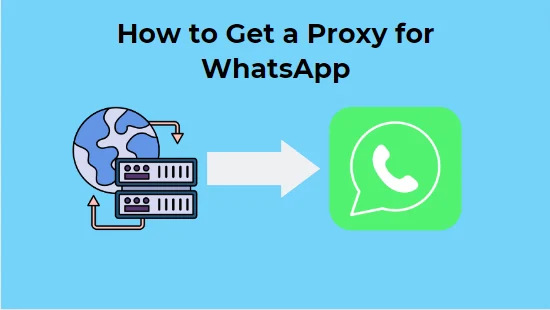How to Get a Proxy for WhatsApp
How to Get a Proxy for WhatsApp
WhatsApp is a widely popular messaging application used by millions of people around the world. However, in some cases, you may encounter restrictions or limitations when using WhatsApp, especially if you are in a region where the app is blocked or if your IP address is restricted. Fortunately, there is a solution to bypass these restrictions and gain access to WhatsApp by using a proxy server. In this article, we will guide you on how to get a proxy for WhatsApp so that you can enjoy uninterrupted communication with your contacts.
What is a Proxy?

A proxy acts as an intermediary between your device and the internet. It reroutes your internet traffic through a separate server, hiding your original IP address and allowing you to access websites or services that may be restricted in your location. By using a proxy, you can bypass regional restrictions and access WhatsApp even if it is blocked in your country.
Why Use a Proxy for WhatsApp?
There are several reasons why you might want to use a proxy for WhatsApp:
- Bypassing Geo-restrictions: If WhatsApp is blocked or restricted in your region, a proxy can help you bypass these limitations and access the app.
- Enhancing Privacy and Security: By using a proxy, you can add an extra layer of security and anonymity to your WhatsApp communication. Proxies can encrypt your data and protect your identity.
- Accessing WhatsApp Business Features: Some WhatsApp Business features may be limited to specific regions. With a proxy, you can access these features regardless of your location.
- Testing WhatsApp Localization: If you are a developer or marketer, using a proxy allows you to test how WhatsApp functions in different regions, ensuring optimal localization.
Types of Proxies
There are two main types of proxies commonly used: HTTP proxies and SOCKS proxies.
HTTP Proxies
HTTP proxies are primarily used for web browsing. They work at the application layer of the network stack and can handle HTTP and HTTPS traffic. HTTP proxies are suitable for accessing websites and services through a web browser, including WhatsApp Web.
SOCKS Proxies
SOCKS proxies operate at a lower level than HTTP proxies. They can handle various types of internet traffic, including messaging applications like WhatsApp. SOCKS proxies are generally more versatile and can be used for a wider range of purposes.
Finding a Reliable Proxy Provider
To get a proxy for WhatsApp, you need to find a reliable proxy provider. Consider the following factors when choosing a provider:
- Reputation and Reliability: Look for providers with a good reputation and positive reviews from users. Ensure that the provider offers reliable and stable proxy connections.
- Server Locations: Check if the provider has proxy servers located in the regions you are interested in accessing WhatsApp from. Having servers in multiple locations will give you more options and flexibility.
- Proxy Types and Protocols: Make sure the provider offers both HTTP and SOCKS proxies, depending on your specific needs. Additionally, check ifthey support the protocols required by WhatsApp.
- Speed and Performance: Look for providers that offer fast and high-performance proxies. Speed is crucial for a smooth and seamless WhatsApp experience.
- Customer Support: Consider the level of customer support provided by the proxy provider. It’s essential to have reliable assistance if you encounter any issues or have questions.
Setting Up a Proxy for WhatsApp

Now that you have chosen a proxy provider, follow these steps to set up a proxy for WhatsApp:
Step 1: Choose a Proxy Provider Visit the website of your chosen proxy provider and explore their services and plans. Select a plan that suits your needs and budget.
Step 2: Sign Up and Purchase a Proxy Plan Create an account on the proxy provider’s website and proceed to purchase a proxy plan. Provide the necessary information and choose the desired proxy type (HTTP or SOCKS) and location.
Step 3: Receive Proxy Details Once you have completed the purchase, the proxy provider will provide you with the necessary details, including the proxy IP address, port number, and authentication credentials (if required).
Step 4: Configure Proxy Settings On your device or in the WhatsApp application settings, locate the proxy configuration options. Enter the proxy details provided by the provider, including the IP address, port number, and authentication credentials if necessary.
Step 5: Verify Proxy Connection After configuring the proxy settings, verify the connection by accessing WhatsApp. Ensure that you can send and receive messages without any issues. If there are any problems, double-check the proxy details and configuration.
Troubleshooting Proxy Issues
While setting up and using a proxy for WhatsApp, you may encounter some issues. Here are some common troubleshooting steps:
- Check Proxy Configuration: Verify that the proxy details are correctly entered in the settings. Ensure there are no typos or errors.
- Test Different Proxy Servers: If you experience connection issues, try using a different proxy server from the provider’s available options.
- Restart WhatsApp and Device: Sometimes, a simple restart of the application or device can resolve connectivity problems.
- Contact Customer Support: If you are unable to resolve the issue, reach out to the proxy provider’s customer support for assistance.
Best Practices for Using Proxies with WhatsApp

To ensure a smooth and reliable experience when using a proxy for WhatsApp, consider the following best practices:
- Choose Proxies in Proximity: Select proxy servers that are geographically closer to your actual location. This can help reduce latency and improve performance.
- Regularly Monitor Proxy Performance: Keep an eye on the performance of your chosen proxy. If you notice any significant slowdowns or connection issues, consider switching to a different proxy server.
- Stay Updated: Keep your proxy provider’s software or applications up to date. Regular updates can improve security and address any compatibility issues.
- Protect Your Credentials: Ensure that you do not share your proxy authentication credentials with anyone to maintain the security and privacy of your connection.
Conclusion
Getting a proxy for WhatsApp can be an effective way to bypass restrictions, enhance privacy, and access the application from any location. By following the outlined steps, you can easily set up a proxy for WhatsApp and enjoy uninterrupted communication with your contacts.
FAQs
Can I use a free proxy for WhatsApp?
While there are free proxies available, it’s recommended to use a paid proxy for better reliability, performance, and security. Free proxies may be unreliable, slow, or pose security risks.
Can I use a VPN instead of a proxy for WhatsApp?
Yes, you can use a VPN (Virtual Private Network) to bypass restrictions and access WhatsApp. VPNs encrypt your internet traffic and route it through a secure server, providing similar benefits to proxies.
Will using a proxy affect the quality of my WhatsApp calls?
The quality of WhatsApp calls can be influenced by various factors, including the speed and stability of your internet connection. While using a proxy may introduce some additional latency, a high-quality proxy should not significantly impact call quality.
Can I use the same proxy for multiple devices?
It depends on the proxy provider’s terms and conditions. Some providers allow multiple device connections with a single proxy, while others may have restrictions or additional charges for multiple devices.
Are proxies legal to use for WhatsApp?
The legality of using proxies for WhatsApp depends on the regulations and restrictions in your country. It’s essential to comply with the laws and terms of service governing the use of proxies and WhatsApp in your jurisdiction.
Also Read These Post
How to earn money on Facebook $500 every day
How to Delete a Pinterest Account
Spanish Island Known for Its Nightlife
MP Patwari Result 2023 Declared: Check and Download Now!
What Is i3, i5, i7, and i9: Understanding Intel Core Processors
